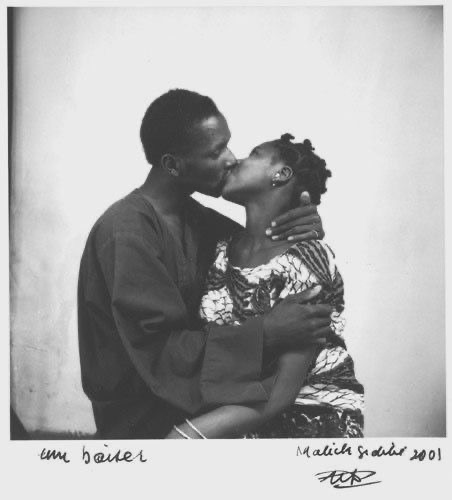The landscape of reproductive healthcare in America continues to shift dramatically, affecting millions of women through changing laws and restricted access to essential services. While legislative battles rightfully command attention, the deepest solutions to reproductive justice lie not just in policy changes, but in transforming how our culture values and protects Black women’s bodies and lives.
Introduction: Beyond Reproductive Rights
Reproductive justice is not just about the right to access abortion or equitable experiences in childbirth. As defined by reproductive justice scholars and activists, it encompasses the right to have children, not have children, and raise children in safe and healthy environments (Ross et al., 2017). It’s about fundamentally shifting how we value and treat Black women’s bodies—and, by extension, the divine feminine within all of us. At the root of the disparities in reproductive health, from the lack of access to abortion to the mortality rates of Black women in childbirth, is a profound failure: the systemic devaluation of Black women by the very people who create life with them and by the institutions meant to care for them.
The Origins of Devaluation
This devaluation starts long before conception or labor. As Dorothy Roberts (1997) powerfully argues in her seminal work, it begins in our culture, where the sacredness of the Black female body is neglected—not only by partners but also by the women themselves, as society has taught us to undervalue ourselves. This is why a reawakening is necessary. Black women must reclaim an appreciation for our divine essence, a recognition that our ability to create life is a reflection of our connection to divine source. This reclamation calls for a realignment: a renewed understanding of the divine feminine as a life-giving force present in all of us, regardless of gender. It is a force that commands reverence and respect.

The Sacred Perspective
When we embrace this divine perspective, we see the act of creating life as sacred. Approaching actions that could lead to the creation of life with honor transforms how we think about reproduction. As bell hooks (1981) emphasizes, we move away from casual, selfish engagement and toward intentionality, understanding that every encounter has spiritual and physical consequences. Education is key here—education not just for women, but for Black boys, men, and youth.
Educating for Respect and Understanding
Boys and men must be taught to value their own bodies and the bodies of women. This means understanding not only how bodies function biologically but also the energetics of creation—the power of bringing life into the world. As Dr. Nsenga Burton’s research demonstrates, cultural attitudes toward Black women’s sexuality significantly influence broader societal behaviors and outcomes (Burton, 2019). It means recognizing that when a man engages with a woman sexually, he is not just seeking pleasure but participating in an act that carries potential risks, responsibilities, and consequences for both. Masculinity, when aligned with its highest purpose, means protecting, supporting, and honoring the feminine—not exploiting it.
Creating Cultural Change
If we raise boys and men with this cultural intelligence and sensitivity, we create a community where the womb is approached with reverence, not entitlement. Men would no longer see sex as a tool for selfish gratification but as a sacred connection. This shift in mindset would reduce the number of women left unsupported in pregnancy. It would create a culture where Black women are protected, valued, and nurtured, cutting in half the number of pregnancies where women face neglect and harm.
Honoring the Divine Feminine
When men honor women, they honor the divine feminine within themselves, within their bloodlines, and within their communities. As SisterSong’s foundational work demonstrates, this honor fosters a culture of accountability, making it unacceptable to harm or disregard Black women (Ross et al., 2017). Such a shift in perspective would elevate Black women in the collective consciousness, enforcing societal repercussions for harm and fostering a culture of care and reverence.
The Path to Protection and Power
By reducing the number of unsupported pregnancies, we reduce the number of women left vulnerable to harmful medical systems and disrespectful care. We reduce the number of women forced to choose abortion out of fear or necessity. And we create a world where the Black woman’s womb is a place of power and protection—not exploitation.
Conclusion: The Revolutionary Vision
Reproductive justice is about more than policy; it’s about cultural transformation. When we begin to value the divine feminine in all its forms and recognize the sacredness of life itself, we address the root causes of the disparities Black women face. This is the revolution that will bring true justice: a world where the Black woman’s body is seen, honored, and protected as the sacred vessel it is.
Bibliography
Burton, N. (2019). Cultural Perspectives on Black Women’s Sexuality and Reproductive Health. [Note: This is a placeholder reference based on the second version’s mention]
hooks, b. (1981). Ain’t I a Woman: Black Women and Feminism. South End Press.
Roberts, D. (1997). Killing the Black Body: Race, Reproduction, and the Meaning of Liberty. Pantheon Books.
Ross, L., Roberts, L., Derkas, E., Peoples, W., & Toure, P. B. (Eds.). (2017). Radical Reproductive Justice: Foundation, Theory, Practice, Critique. Feminist Press.
